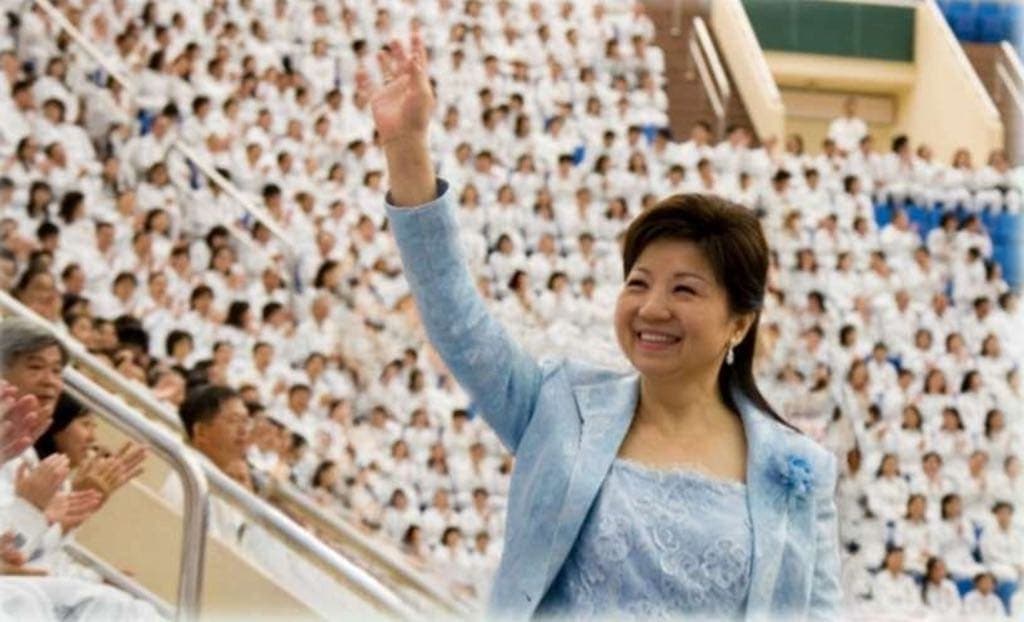In the West, we say that behind every good man there is a good woman. We learned that behind a great Shifu there is a great Shimu too.
by Marco Respinti
*Introduction to Session 2 of the conference “Remembering Shimu’s Fight: Conscience and the Tai Ji Men Case,” Pasadena, California, April 5, 2024.
An article already published in Bitter Winter on April 12th, 2024.

For many of us, the “Tai Ji Men case” is now a familiar topic, even if we are not Tai Ji Men dizi, or disciples. We feel as we have been knowing it since the beginning, even if we started studying it only a few years ago. We will continue lamenting the incredible non-solution of that case, paper after paper, article after article, webinar after webinar, conference after conference, but we also run a risk: that of taking things for granted, forgetting their real meaning in human terms.
In fact, behind the label “Tai Ji Men case” there are personal stories of real people. There are dramas and tragedies of real people. Let me today, together with my colleagues, remember one of the persons who suffered the most because of the case. It is Madam Yu Mei-Jung. She was the co-founder of the Tai Ji Men Qigong Academy, the Vice President of The Federation of World Peace and Love (FOWPAL), as well as the Chair of the Advisory Board of The Association of World Citizens.
When Dr. Hong Tao-Tze, Shifu (or Grand Master) of Tai Ji Men, was unjustly detained in 1996 with some dizi, at the beginning of what we now call the “Tai Ji Men case,” she was detained with them. She shared their fate, the bitterness, the loss, the pain. Then she went on to see the radiant day of their release as well as the victory in 2007, when the Supreme Court of the Republic of China (Taiwan) ruled that Tai Ji Men and those who had been detained were guilty of no crime. But she also was there sharing Shifu’s and dizi’ sorrow when the case continued, ignoring the Supreme Court’s verdict. At that point, she fought evil with goodness and engaged in the peace education work of FOWPAL, contributing to bring a smile where there was sorrow, relief where there was suffering, understanding where there was fight, peace where there was evil. Today, we salute her.
Allow me now to share my interests in ancient civilizations. Sumerians lived between the 4th and 3rd millennium BCE, in the historical region of southern Mesopotamia. Their literature includes a poem, typically inscribed in cuneiform characters on a tablet made of clay, which archeologists classified as “Istanbul #2461.” Conserved in the Museum of the Ancient Orient in Istanbul, Türkiye, it was discovered at Nippur, in present-day Iraq, between 1889 and 1900. In 1951, it was translated into English by Samuel Noah Kramer (1897–1990), one of the most important specialists of Sumerian history, literature, and language.
Its verses were written by Sumerian king Shu-Sin, who reigned about 1973–1964 BCE, to his spouse. Scholars have intitled it “The Love Song of Shu-Sin.” Interestingly, the poem has a profound spiritual meaning. It could have in fact be part of the religious rituals that celebrated yearly the symbolic marriage of the king of the Sumerians with Inanna, the goddess of love, war, and fertility but also of political power and divine law. I dare here only mention that the concept of “divine law” has been associated by both Western and Eastern scholars and commentators with the Chinese concept of Tao, which is at the roots of Tai Ji Men’s teachings.

The first stanza of that Sumerian poem reads:
Bridegroom, dear to my heart,
Goodly is your beauty, honeysweet,
Lion, dear to my heart,
Goodly is your beauty, honeysweet.
In his book “History Begins at Sumer,” originally published in 1956, and again in 1959 and 1981, Kramer offers the complete translation of the poem, from which I took these lines, commenting: “there was no mistaking its content. What I held in my hand was one of the oldest love songs written down by the hand of man.”

Madam Yu Mei-Jung has played many important roles in her life, but first of all she was Shimu, the wife of our good friend Dr. Hong. The Chinese words “Shifu” and “Shimu” are both composed by two ideograms, one being common to them. Their common ideogram is “Shi,” 師, and means “teacher.” “Shifu” contains the ideogram “Fu,” 父, meaning “father,” and “Shimu” contains the ideogram “Mu,” 母, meaning “mother.” Shifu and Shimu are the spiritual parents of the dizi, and the Tai Ji Men community would not have existed with only one of them.
It is then proper to dedicate the Sumerian love poem, the most ancient love poem of humanity not only in remembrance of the departed Shimu, but to celebrate the incessant love that brought Dr. Hong Tao-Tze and Madam Yu Mei-Jung together.
Note: The author wants to thank Tsai Li-Hsueh for her help with the Chinese language.
